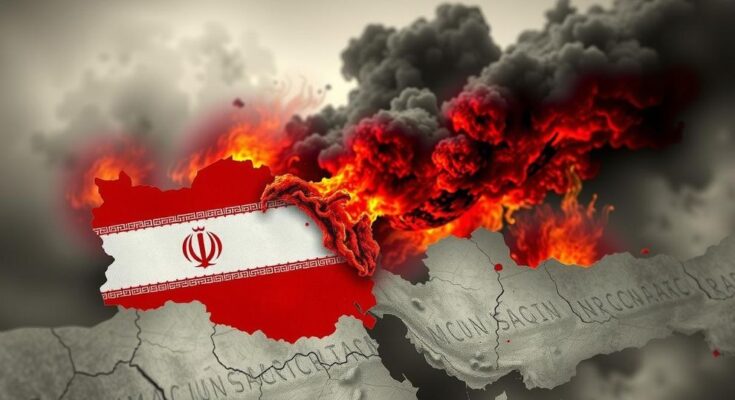Iran continues to support Syrian President Bashar al-Assad while opposing a military offensive from rebel forces. Recent diplomatic talks highlighted the need for political dialogue. Despite threats of troop deployment, substantial Iranian mobilization has not materialized, reflecting a cautious approach amidst escalating tensions in the region.
Iran maintains its staunch support for Syrian President Bashar al-Assad amid a significant military offensive from opposition fighters aimed at toppling his government. With the attendance of Iranian, Russian, and Turkish foreign ministers at recent talks in Qatar, discussions pivoted around fostering political dialogue and ceasing hostilities. Iran’s Foreign Minister Abbas Araghchi emphasized the need for alignment against what he termed “American-Zionist conspiracy” motivating the opposition’s actions. Despite Iran threatening to deploy troops, no substantial military mobilization has been observed, indicating a degree of caution in Tehran’s approach.
In recent developments, the opposition, spearheaded by Hayat Tahrir al-Sham (HTS), is capturing critical regions, pushing the conflict towards a more aggressive stage. HTS has shifted its narrative in the media, attempting to present itself as a nationalist bloc rather than a remnant of al-Qaeda. Turkish President Recep Tayyip Erdogan has publicly expressed support for this offensive while simultaneously seeking talks with al-Assad’s regime. The political landscape is further complicated by Iran’s nuanced response to Turkey’s backing of HTS and its own interests in northern Syria.
Iran’s foreign ministry has recently adopted an ambiguous stance towards the ongoing conflict, referring to opposition groups as “armed groups,” suggesting a pivot in internal rhetoric. Tehran continues to warn against the repercussions of the conflict spreading regionally, particularly given rising tensions connected to ongoing confrontations involving Israel. Despite Iranian lawmakers calling for more decisive military intervention, the current strategy relies heavily on proxy forces, emphasizing the complexity of interaction between local dynamics and broader geopolitical interests.
The Syrian conflict has persisted since 2011, transforming from an internal struggle within the country to a broader regional conflict involving international powers. Iran has supported al-Assad’s government through military advisors and allied groups, while opposition forces receive support from external entities, notably Turkey and various Western nations. The complex engagement of these state and non-state actors has driven the conflict through various shifts in power dynamics and territorial control, leading to a fragmented landscape characterized by competing interests.
In summary, Iran’s involvement in Syria reflects a calculated strategy aimed at maintaining its ally, Bashar al-Assad, while navigating complex regional dynamics involving Turkey, the opposition forces, and the implications of external military support. The potential for direct Iranian troop deployment remains ambiguous, highlighting the delicate balance Tehran must maintain amidst a rapidly changing conflict landscape. The situation demands ongoing observation as geopolitical motives continue to influence the actions of involved parties.
Original Source: www.aljazeera.com




